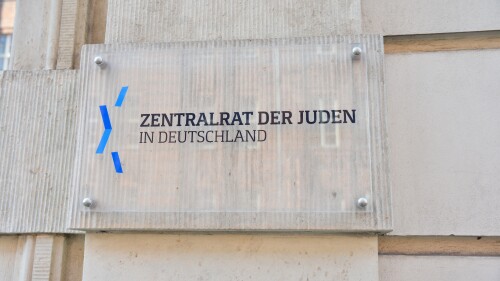Israeli experts closely monitoring Iran perceive the defeat of Hamas as pivotal in curbing the influence of Iran and Hezbollah’s aggressive tendencies.
In recent months, Israel and the Iran-backed Hezbollah have engaged in daily cross-border skirmishes following a deadly attack by Hamas on October 7 that killed 1,200 Israelis and ignited the Gaza war.
Yaakov Katz, renowned author of Weapon Wizards: How Israel Became a High-Tech Military Superpower emphasized the pressing need for Israel to establish a stable and secure post-war environment in Gaza to prevent Hamas from regaining control. He believes that “The biggest challenge for Israel is creating a postwar reality in Gaza that is stable and secure and doesn’t see Hamas regain control. Iran is obviously going to continue to stoke the flames and try to undermine anything that is meant to provide security for Israel.”
Katz added, “And for that reason, we need to have a mechanism in place that can deny Iran that ability to continue to spread terrorism and chaos through the Gaza Strip that can then launch attacks against Israel. For that to happen, Israel needs to be involved at least in providing security control over the Gaza Strip.”
Israel is slated to seize the Gaza Strip’s southernmost border town of Rafah in an effort to secure the release of the over 100 hostages held by Hamas and root out the last vestiges of the jihadi Sunni group.
The Tehran-born Beni Sabti, from the Israeli National Security and Strategy Institute, told Iran International that there are two views on what the end of Hamas spells for Hezbollah.
“Some experts think that defeating Hamas will bring a high level of deterrence for Israel. If Hamas is destroyed it will be a good thing against Hezbollah. They will be deterred, and it will decrease confrontations with Israel.”
Sabti shared the view that dismantling Hamas could serve as a deterrent to Hezbollah, prompting the militant group to reconsider its aggressive stance.
According to a Reuters report, France proposed a ceasefire deal that seeks to end the clashes on the Israeli-Lebanese border. A key element of the proposal would require Hezbollah’s elite unit to withdraw six miles from the border. Hezbollah rejected the plan and its Secretary-General Hassan Nasrallah previously said his Shiite militia’s attacks on Israel will end when Israel stop its “aggression” in Gaza.
Sabti emphasized Hezbollah’s formidable arsenal of 150,000 missiles, representing a potent threat compared to Hamas.
The extensive rocket arsenal amassed by Hezbollah since the 2006 war was a focal point of Nasrallah’s recent speech, where he boasted of precision-guided missiles capable of targeting all of Israel.
Nasrallah said in a televised speech last week that Hezbollah has a “huge arsenal” of precision-guided missiles that can target all Israeli territory “from Kiryat Shmona to Eilat.” Kiryat Shmona is in northern Israel and Eilat is the country’s southernmost city.
Sabti stressed the importance of Hezbollah’s withdrawal from the border for de-escalation, arguing that “Israel is not seeking war with Lebanon because the damage will be very great.”
Both Israeli viewpoints “agree that the outcome with Hamas will have repercussions for Hezbollah,” potentially altering the dynamics in the region, Sabti emphasized.
However, an alternative view held by a minority in Israel, according to Sabti, argues that “If Hamas is defeated, Hezbollah will feel a duty to make more trouble with Iran’s support,” potentially triggering a more destructive war.
Yigal Carmon, former counter-terrorism advisor to Israeli prime ministers Yitzhak Shamir and Yitzhak Rabin, said Lebanon will face immense damage to its infrastructure if Hezbollah launches a war against Israel. Carmon told Iran International that Israel “will bomb the sewage, the water and the electricity centers of Lebanon,” turning its capital into a uninhabitable wasteland.
In late December, Israeli war cabinet minister Benny Gantz said, “I am sure that [Hassan] Nasrallah is looking at what is happening here [in Gaza] and does not want it to happen to him [in Lebanon].”
Israel fought a 34-day war in 2006 with Hezbollah in response to the Iran-backed group’s kidnapping of two Israeli soldiers.
Iran International was the first news media to publish on September 5 Carmon’s early warning that one of the Iranian proxy movements would invade Israel in September or October. Carmon is the founder and president of the Middle East Media Research Institute (MEMRI).
In a February policy paper for the Washington Institute for Near East Policy titled “Reinforcing U.S. Diplomacy to Stop a Hezbollah-Israel War,” Hanin Ghaddar writes “Israel cannot return its citizens to the north without security guarantees, and Hezbollah cannot make major compromises without securing significant gains to advance its regional role and Iran’s interests. Such dynamics increase the likelihood of a widening conflict.”
Almost 100,000 Israelis have been compelled to flee their homes in the north due to Hezbollah’s bellicosity.
The possibility of edging closer to a high-intensity conflict gained momentum following remarks by Gantz on Sunday. Gantz stated, “Israel will achieve our objectives and remove Hezbollah from our border towns” along the Lebanese border. He further suggested that Hezbollah is at a crossroads, contemplating whether to “commit organizational suicide.”








